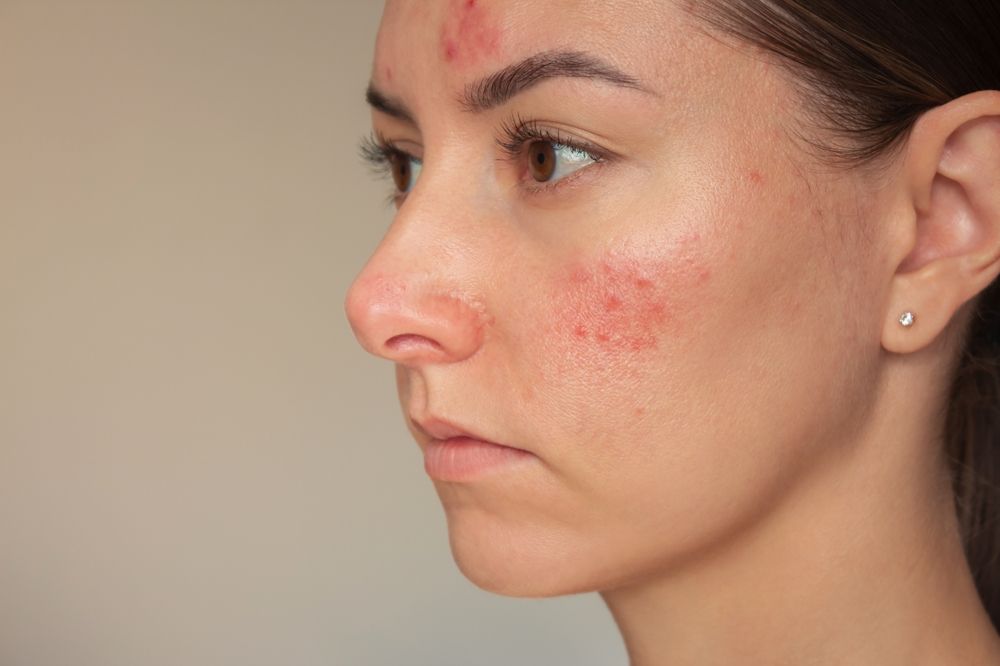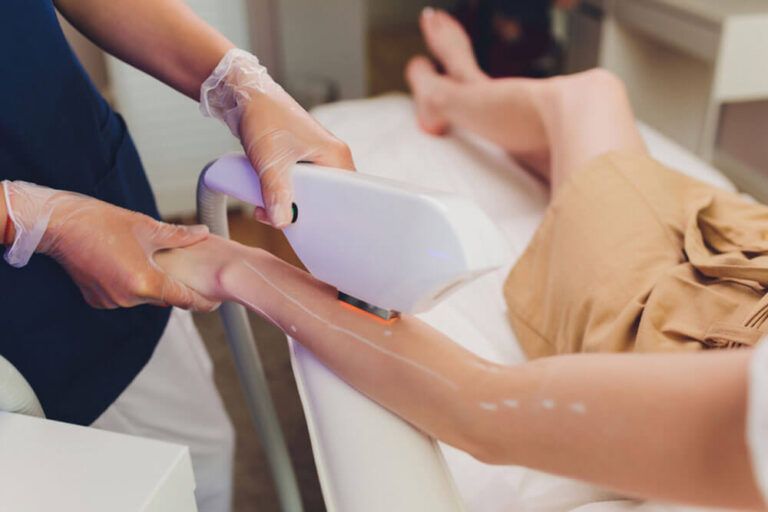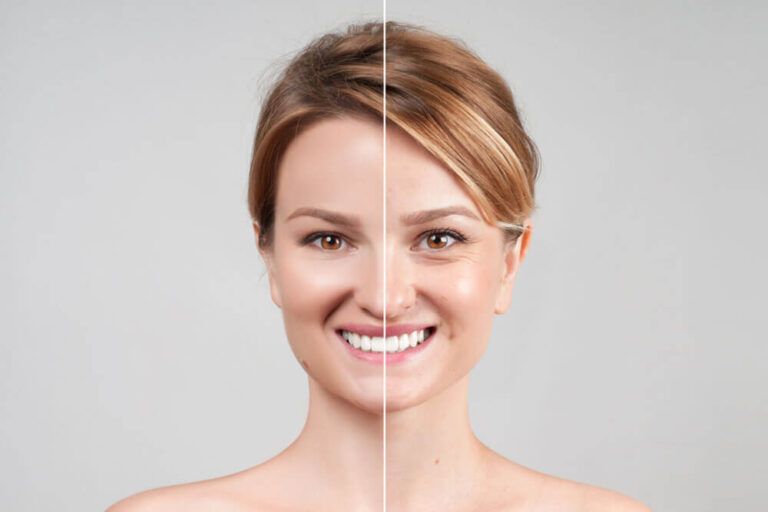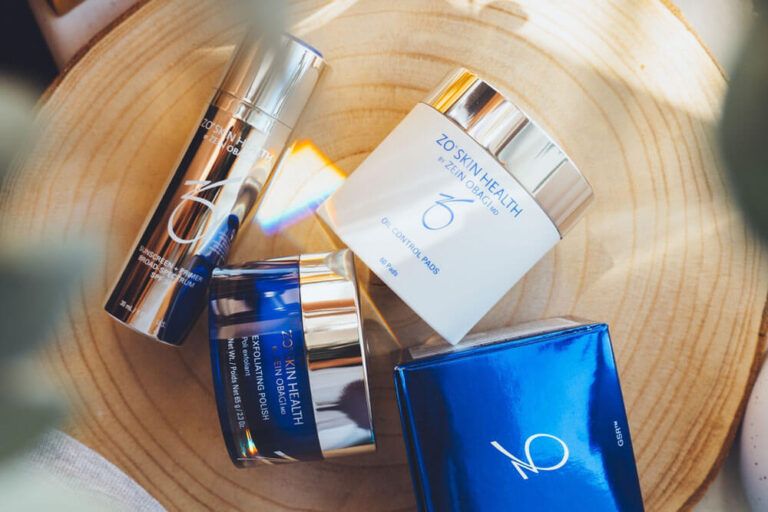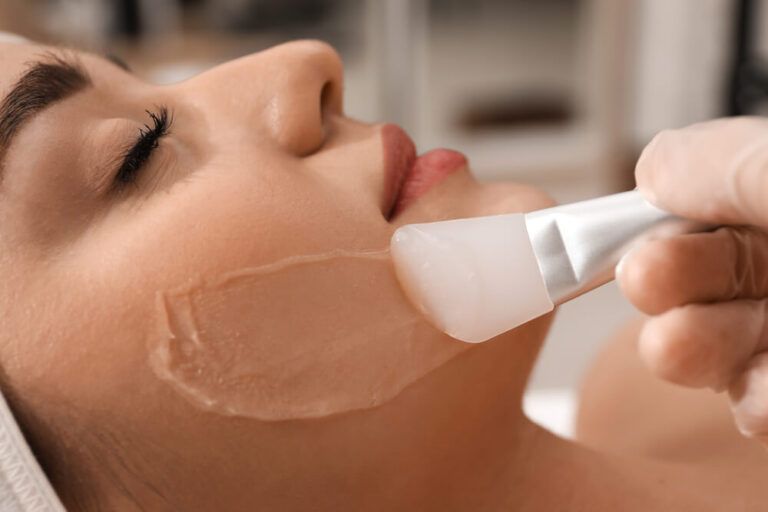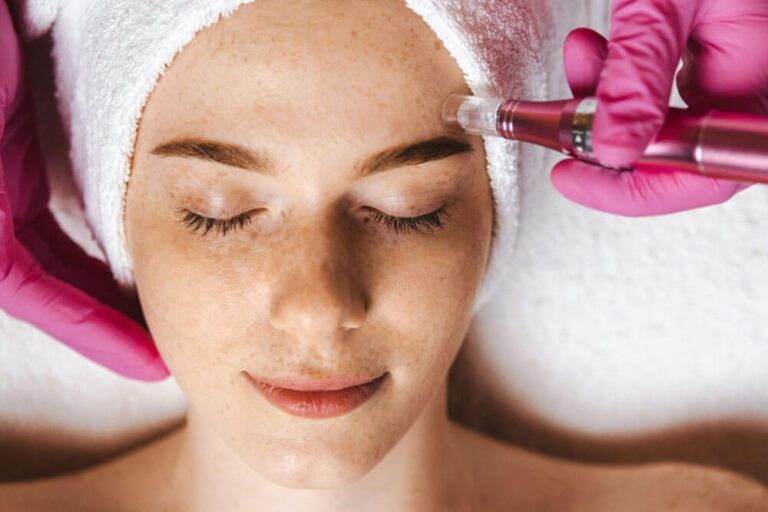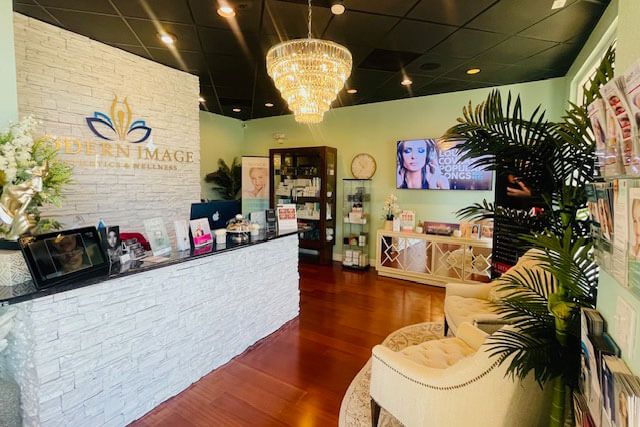Acne is a common skin condition that affects individuals of all ages, causing frustration and impacting self-esteem. While various factors such as hormonal changes, genetics, diet, and stress can contribute to acne, selecting the right skincare ingredients can significantly improve the skin’s condition and help combat breakouts. In this blog, we’ll explore some of the top skincare ingredients known for their effectiveness in treating acne, providing you with the knowledge to make informed choices for your skincare routine. Whether you struggle with occasional pimples or persistent acne, understanding these powerful ingredients can be the first step towards achieving clearer, healthier skin.
Understanding Acne
Acne is a multifaceted skin condition that can affect people at any age, though it is most commonly associated with adolescence due to hormonal changes. To effectively combat acne, it’s essential to understand its underlying causes and the different types it can manifest as.
Causes of Acne
- Hormonal Changes: Fluctuations in hormones, especially during puberty, menstruation, pregnancy, and stress, can increase oil production in the skin, leading to clogged pores.
- Genetics: A family history of acne can increase the likelihood of developing the condition, as genetic factors can influence skin type and oil production.
- Diet: Certain foods, particularly those high in sugars and dairy, have been linked to an increase in acne breakouts in some individuals.
- Stress: High stress levels can exacerbate acne by triggering hormonal changes that increase oil production and inflammation.
- Improper Skincare: Using harsh or unsuitable skincare products can irritate the skin, leading to increased breakouts.
Types of Acne
- Blackheads: Open comedones that form when pores are clogged with oil and dead skin cells, appearing as small, dark spots on the skin’s surface.
- Whiteheads: Closed comedones that occur when a pore is clogged and covered by skin, resulting in a small, white bump.
- Papules: Small, red, tender bumps that arise when hair follicles become inflamed or infected.
- Pustules: Pimples containing pus, appearing as red bumps with a white or yellow center.
- Cysts: Large, painful, pus-filled lumps that form deep within the skin, often leading to scarring.
- Nodules: Hard, painful lumps beneath the skin’s surface that result from severe inflammation.
Understanding the causes and types of acne is crucial for selecting the appropriate treatments and skincare ingredients. By addressing the specific factors contributing to your acne, you can develop a more targeted and effective skincare regimen.
Top Skincare Ingredients for Combatting Acne
Salicylic Acid
Salicylic acid, a beta hydroxy acid (BHA), is one of the most effective ingredients for treating acne. Known for its ability to penetrate deep into the pores, salicylic acid works by exfoliating inside the pore lining, helping to clear out excess oil, dead skin cells, and other debris that can lead to breakouts.
Salicylic acid is oil-soluble, which allows it to effectively penetrate the lipid barrier of the skin. Once inside the pores, it breaks down the bonds between dead skin cells, promoting exfoliation and preventing clogged pores. This action helps to reduce the formation of blackheads and whiteheads and can also diminish the appearance of existing blemishes. Benefits of salicyclic acid include:
- Unclogs Pores: By exfoliating inside the pores, salicylic acid helps to keep them clear, reducing the occurrence of acne.
- Reduces Inflammation: Salicylic acid has anti-inflammatory properties that help to calm irritated skin and reduce the redness and swelling associated with acne.
- Prevents Future Breakouts: Regular use of salicylic acid can help to maintain clear pores and prevent new acne from forming.
Incorporating salicylic acid into your skincare routine can be particularly beneficial for those with oily and acne-prone skin. However, it’s important to start slowly, as overuse can lead to dryness and irritation. A typical regimen might include a cleanser, toner, or spot treatment containing salicylic acid to effectively manage and prevent acne breakouts.
Benzoyl Peroxide
Benzoyl peroxide is a powerful antibacterial agent widely used in acne treatments. It is known for its ability to target and kill the bacteria responsible for acne, Propionibacterium acnes (P. acnes), making it an essential ingredient in many over-the-counter and prescription acne products.
Benzoyl peroxide works by introducing oxygen into the pores, creating an inhospitable environment for the anaerobic bacteria that cause acne. This reduces the bacterial population, decreasing the likelihood of acne breakouts. Additionally, benzoyl peroxide helps to remove excess oil and dead skin cells from the surface of the skin, further preventing clogged pores. Benefits of Benzoyl peroxide include:
- Kills Acne-Causing Bacteria: By effectively reducing the P. acnes bacteria, benzoyl peroxide helps to prevent and treat inflamed acne.
- Reduces Excess Oil Production: Helps to balance oil levels on the skin, preventing the overproduction of sebum that can lead to clogged pores.
- Decreases Redness and Swelling: Its anti-inflammatory properties help to soothe and calm inflamed acne, reducing the size and redness of pimples.
Benzoyl peroxide is available in various concentrations, typically ranging from 2.5% to 10%. It can be found in cleansers, gels, creams, and spot treatments. While highly effective, benzoyl peroxide can cause dryness and irritation, especially when first introduced into a skincare routine. It is recommended to start with a lower concentration and gradually increase usage to allow the skin to build tolerance. Additionally, benzoyl peroxide can bleach fabrics, so caution is advised when using products containing this ingredient.
Retinoids (Retinol and Retinoic Acid)
Retinoids, derivatives of Vitamin A, are among the most effective and well-researched treatments for acne. They work by promoting cell turnover and preventing the formation of clogged pores, making them a key component in both the treatment and prevention of acne.
Retinoids accelerate the shedding of dead skin cells and stimulate the production of new skin cells. This increased cell turnover helps to prevent the buildup of dead skin cells and sebum that can clog pores and lead to acne. Retinoids also have anti-inflammatory properties that help to reduce the redness and swelling associated with acne. Benefits of retinoids include:
- Prevents Clogged Pores: By promoting the rapid turnover of skin cells, retinoids help to keep pores clear and reduce the formation of new acne.
- Improves Skin Texture: Retinoids can help to smooth and refine the skin’s surface, improving the overall texture and appearance.
- Reduces Acne Scars and Hyperpigmentation: Over time, retinoids can help to fade post-inflammatory hyperpigmentation and acne scars, leading to a more even skin tone.
- Treats and Prevents Acne: Effective for both treating existing acne and preventing future breakouts, making them a versatile ingredient in acne management.
Retinoids are available in various forms and strengths, from over-the-counter retinol to prescription-strength retinoic acid (tretinoin). They can be found in creams, gels, and serums. When starting retinoids, it is important to introduce them gradually into your skincare routine to minimize potential irritation and dryness. Begin with a lower concentration and use it a few times a week, slowly increasing frequency as your skin builds tolerance. Due to their potency, retinoids should be used in conjunction with a good moisturizer and sunscreen, as they can increase skin sensitivity to the sun.
Alpha Hydroxy Acids (AHAs)
Alpha Hydroxy Acids (AHAs), such as glycolic acid and lactic acid, are popular ingredients in skincare due to their exfoliating properties. AHAs work primarily on the skin’s surface, making them effective for treating surface-level acne and improving overall skin texture.
AHAs are water-soluble acids derived from fruits and milk. They work by dissolving the bonds that hold dead skin cells together, promoting their shedding and revealing fresher, healthier skin underneath. This exfoliating action helps to prevent clogged pores and can improve the appearance of acne scars and hyperpigmentation. Benefits of AHAs include:
- Unclogs Pores: By exfoliating the skin’s surface, AHAs help to keep pores clear and prevent the formation of new acne.
- Improves Skin Texture: AHAs smooth the skin’s surface, reducing the appearance of rough patches and uneven texture.
- Fades Acne Scars: Regular use of AHAs can help to lighten post-inflammatory hyperpigmentation and reduce the visibility of acne scars.
- Boosts Collagen Production: AHAs stimulate collagen production, which can improve skin firmness and reduce fine lines and wrinkles.
Common AHAs include glycolic acid, which is derived from sugar cane, and lactic acid, which comes from milk. These acids are found in various skincare products, including cleansers, toners, serums, and masks. When incorporating AHAs into your skincare routine, it is important to start with lower concentrations to allow your skin to adjust. AHAs can increase skin sensitivity to the sun, so using a broad-spectrum sunscreen daily is essential to protect your skin from UV damage.
Niacinamide
Niacinamide, also known as Vitamin B3, is a versatile and effective skincare ingredient known for its anti-inflammatory properties and ability to regulate oil production. It is suitable for all skin types and is particularly beneficial for those dealing with acne.
Niacinamide works by reducing the inflammation and redness associated with acne. It also helps to regulate the production of sebum, the skin’s natural oil, which can prevent the pores from becoming clogged. Additionally, niacinamide supports the skin’s barrier function, enhancing its ability to retain moisture and protect against external irritants. Benefits of niacinamide include:
- Reduces Inflammation: Niacinamide’s anti-inflammatory properties help to calm irritated skin and reduce the redness and swelling of acne lesions.
- Regulates Oil Production: By balancing sebum production, niacinamide can prevent excessive oiliness that often leads to acne breakouts.
- Improves Skin Barrier Function: Niacinamide strengthens the skin’s barrier, helping to retain moisture and protect against environmental damage.
- Minimizes Pore Appearance: Regular use of niacinamide can help to reduce the size and appearance of pores.
- Evens Skin Tone: Niacinamide helps to fade post-inflammatory hyperpigmentation, leading to a more even skin tone.
Niacinamide is available in various formulations, including serums, moisturizers, and toners. It is generally well-tolerated and can be used in conjunction with other acne-fighting ingredients without causing irritation. For best results, niacinamide should be applied consistently as part of a daily skincare routine, typically after cleansing and before moisturizing. Its compatibility with other active ingredients makes it a versatile addition to any acne treatment regimen.
Sulfur
Sulfur is a natural mineral known for its antibacterial and keratolytic properties, making it an effective ingredient for treating acne. It helps to reduce oiliness and clear away dead skin cells that can clog pores.
Sulfur works by drying out the surface of the skin, which helps to absorb excess oil that can contribute to acne. It also has mild antibacterial properties that can help to reduce the presence of acne-causing bacteria. Additionally, sulfur helps to exfoliate the skin, removing dead skin cells and preventing clogged pores. Benefits of sulfur include:
- Reduces Oiliness: Sulfur absorbs excess oil, making it especially beneficial for those with oily, acne-prone skin.
- Unclogs Pores: Its keratolytic properties help to exfoliate the skin, removing dead skin cells and preventing clogged pores.
- Mild Antibacterial Effects: Sulfur helps to reduce the presence of acne-causing bacteria on the skin.
- Effective for Mild to Moderate Acne: Suitable for treating whiteheads, blackheads, and small pustules.
Sulfur is commonly found in spot treatments, masks, and cleansers. Because it can be drying, it’s important to use sulfur products as directed and follow up with a moisturizer to maintain skin hydration. It is often recommended for those with oily and combination skin types.
Tea Tree Oil
Tea tree oil is a natural essential oil with potent antibacterial and anti-inflammatory properties, making it a popular choice for treating acne. It is derived from the leaves of the Melaleuca alternifolia tree.
Tea tree oil works by penetrating the skin and killing acne-causing bacteria. Its anti-inflammatory properties help to reduce the redness and swelling associated with acne. Additionally, tea tree oil can help to regulate oil production, preventing further breakouts. Benefits of tea tree oil include:
- Kills Acne-Causing Bacteria: Its antibacterial properties target and reduce the bacteria responsible for acne.
- Reduces Inflammation: Tea tree oil’s anti-inflammatory effects help to calm irritated skin and reduce redness and swelling.
- Regulates Oil Production: Helps to balance oil levels on the skin, preventing clogged pores.
- Natural Alternative: A natural option for those who prefer plant-based skincare solutions.
Tea tree oil can be found in various skincare products, including cleansers, toners, spot treatments, and masks. It can be quite potent, so it is often recommended to use diluted forms or products formulated with a safe concentration of tea tree oil to avoid skin irritation.
Clay (Kaolin and Bentonite)
Clay, including types such as kaolin and bentonite, is a natural ingredient renowned for its ability to absorb excess oil and detoxify the skin. It is particularly useful for those with oily and acne-prone skin.
Clay works by drawing out impurities from the skin, including excess oil, dirt, and toxins. This helps to keep pores clear and reduce the likelihood of acne breakouts. The absorbent properties of clay help to manage oil production, making the skin less prone to developing acne. Benefits of clay include:
- Absorbs Excess Oil: Clay helps to control oiliness by absorbing excess sebum from the skin.
- Detoxifies the Skin: Draws out impurities and toxins, keeping the skin clean and clear.
- Prevents Clogged Pores: Helps to keep pores clear by removing dirt and dead skin cells.
- Soothes Inflammation: Certain clays, like kaolin, can help to calm and soothe irritated skin.
Clay is often used in masks and cleansers designed for oily and acne-prone skin. These products can be used regularly to help maintain a clear complexion and prevent future breakouts. It is important to follow up with a moisturizer, as clay can sometimes be drying.
Azelaic Acid
Azelaic acid is a naturally occurring acid found in grains like barley, wheat, and rye. It is known for its antimicrobial and anti-inflammatory properties, making it an effective treatment for acne.
Azelaic acid works by inhibiting the growth of acne-causing bacteria and reducing inflammation. It also helps to normalize the shedding of dead skin cells, preventing them from clogging the pores. Additionally, azelaic acid can help to lighten post-inflammatory hyperpigmentation and even out skin tone. Benefits of azelaic acid include:
- Reduces Bacteria: Azelaic acid’s antimicrobial properties help to reduce the presence of acne-causing bacteria.
- Decreases Inflammation: Its anti-inflammatory effects help to soothe and calm irritated skin.
- Prevents Clogged Pores: Helps to normalize cell turnover, preventing dead skin cells from clogging pores.
- Fades Hyperpigmentation: Can lighten dark spots and even out skin tone, making it beneficial for acne scars.
Azelaic acid is available in various forms, including creams, gels, and foams. It is typically used twice daily, and its gentle nature makes it suitable for most skin types, including sensitive skin. Regular use can lead to a clearer, more even complexion over time.
Conclusion
Incorporating the right skincare ingredients is essential for effectively combating acne and achieving clearer, healthier skin. Understanding how ingredients like salicylic acid, benzoyl peroxide, retinoids, AHAs, niacinamide, sulfur, tea tree oil, clay, and azelaic acid work can empower you to make informed choices for your skincare routine. Each ingredient offers unique benefits that can address various aspects of acne, from reducing inflammation and killing bacteria to unclogging pores and improving skin texture. As always, it’s important to introduce new ingredients gradually and consider consulting with a skincare professional to tailor your skincare regimen to your specific needs. With consistency and the right approach, you can manage acne and enjoy a more radiant complexion.
Yuliya Crosley, ARNP is a registered nurse with 28 years of experience in the medical field and 5 plus years in medical aesthetics. She has been internationally trained by some of the most advanced aesthetic providers and plastic surgeons in the country and abroad, is certified in advanced aesthetic procedures and facial rejuvenation, and attends multiple workshops, seminars, symposiums, and trainings. She is an expert in dermal fillers, facial profile balancing, lips augmentation, advanced aesthetic laser skin resurfacing, body contouring, PDO thread lift, and medical grade skin care.


